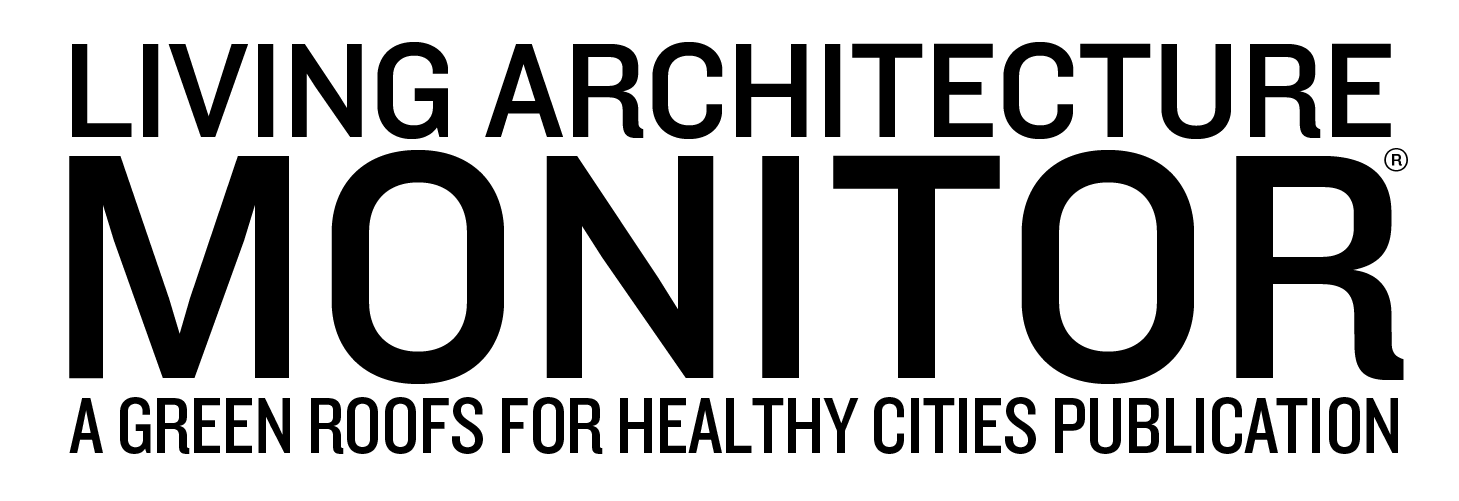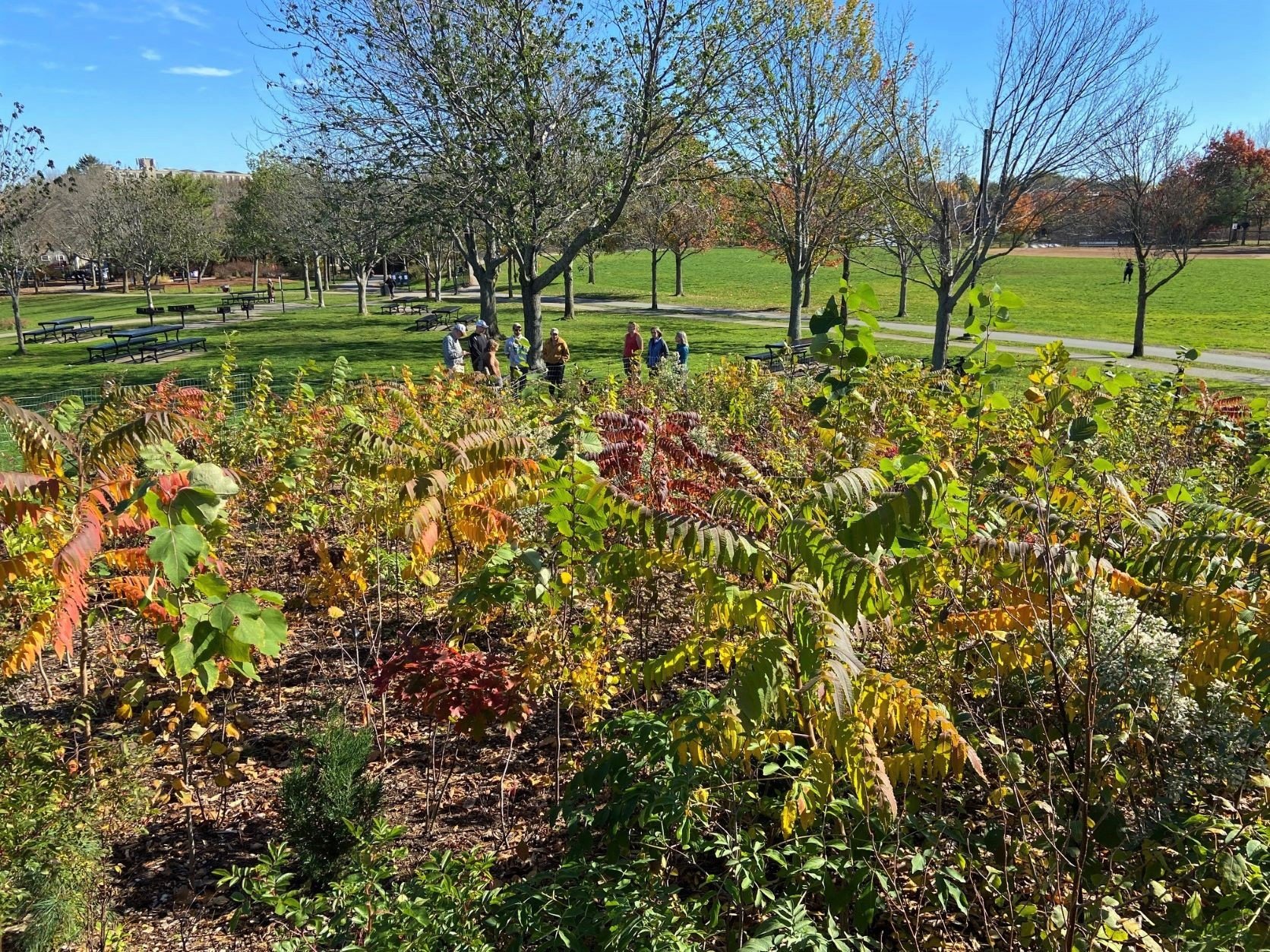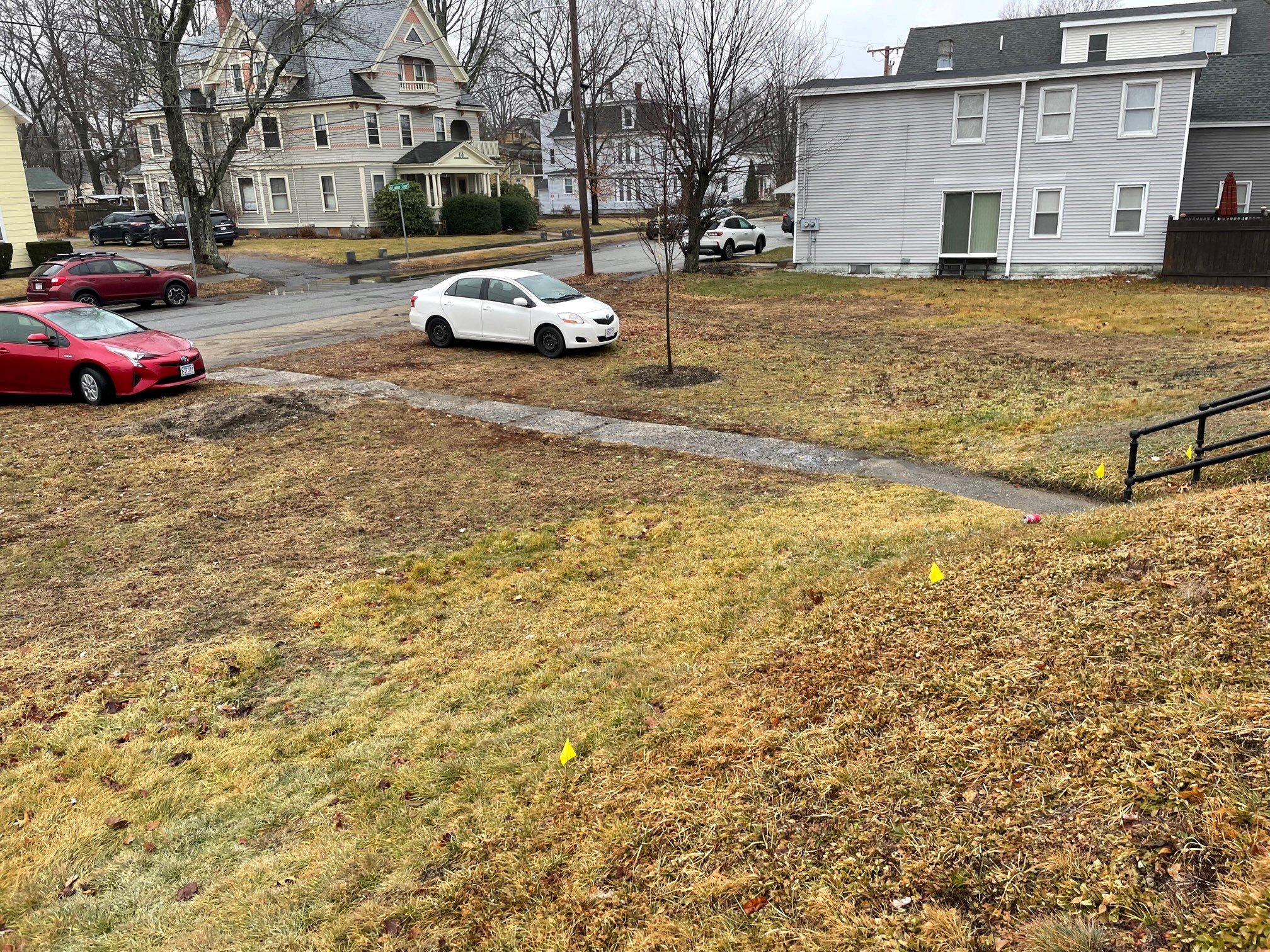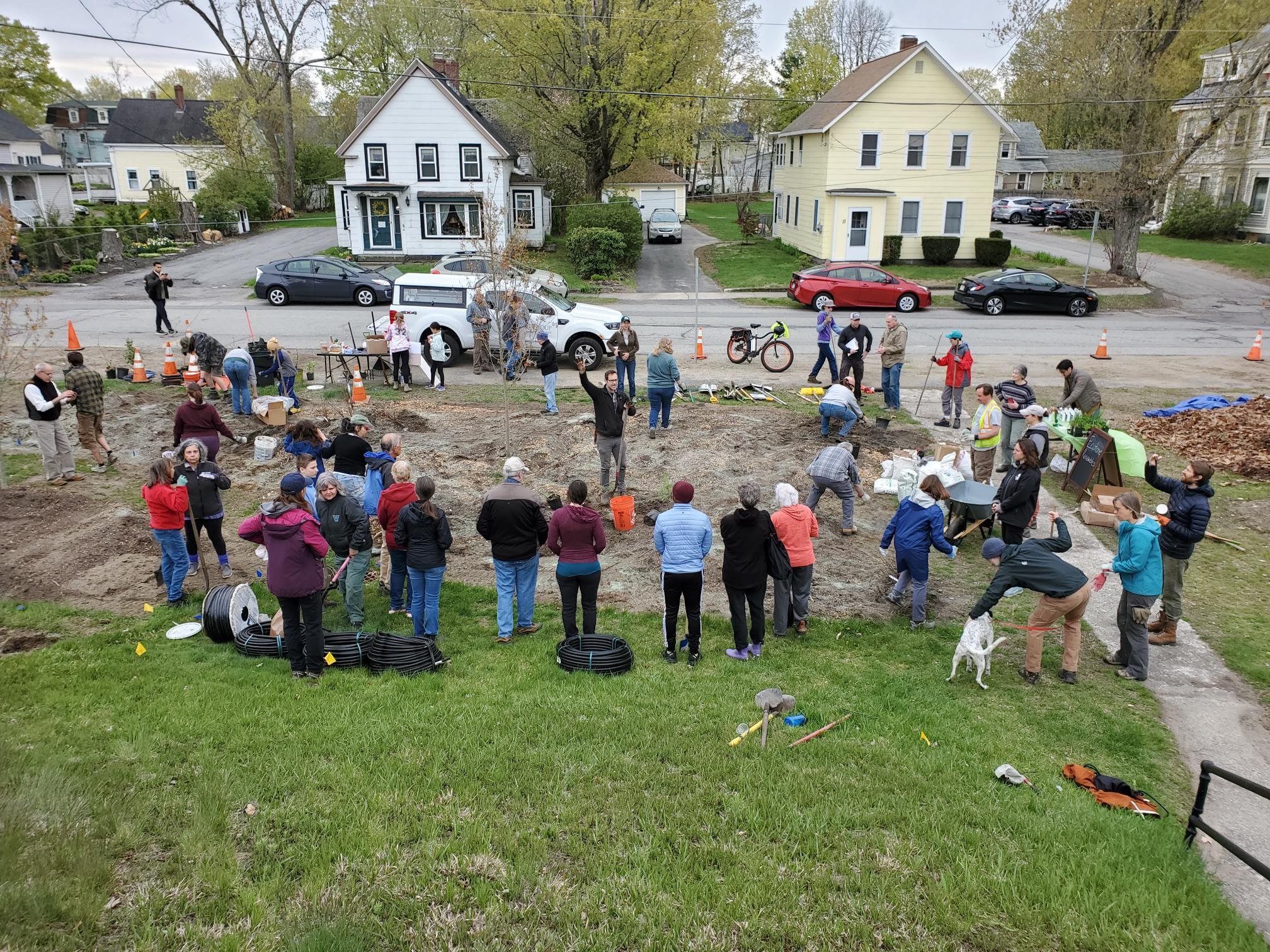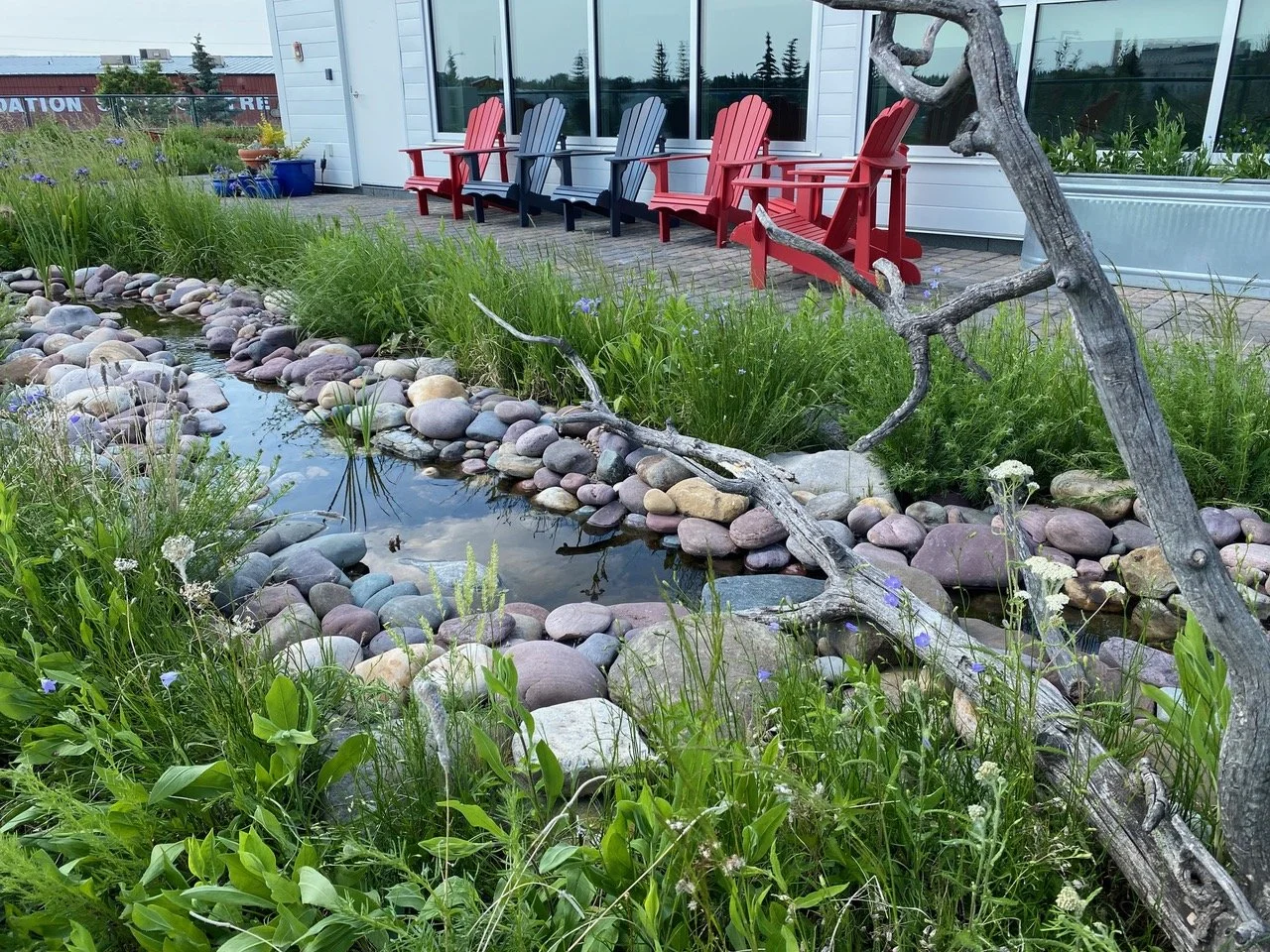Community Driven Biodiversity: The Ayer Devens Main Streets Regional Pocket Forests Project
Advertisement
The Devens Regional Enterprise Zone (Devens, Massachusetts) through the Devens Enterprise Commission and MassDevelopment is working in collaboration with the adjacent Town of Ayer, Massachusetts and residents and community members to act on climate resilience and increase the quality of life by planning, designing, and installing pocket forests through the area. The Ayer Devens project is funded through the Massachusetts Municipal Vulnerability Preparedness (MVP) Action Grant program. The project implements recommendations from the Apple Country Natural Climate Solutions Project which identified pocket forests as a nature-based solution for supporting long term resilience to the impacts of climate change in the region. Nature-based solutions provide cost-effective climate resilience by providing multiple co-benefits, including reduction of greenhouse gas emissions, improved water quality and water supply, reduced flooding, improved air quality, cooler local temperatures, fish and wildlife habitat, support for biodiversity, recreational and aesthetic opportunities and improved physical and mental health.
Prior to project initiation, the planning and design team visited two recently established Miyawaki forest project sites in Cambridge, MA. Then they began a vigorous community participation and engagement program to identify a location for a pilot pocket forest installation site beside a railroad track in Ayer just off of East Main Street, and four additional pocket forest locations (two each in Ayer and Devens) for future implementation projects.
Left to right: Ayer Devens Pocket Forest Project Team at the Miyawaki Forest Project in Danehy Park, Cambridge MA. The pilot pocket forest site on East Main Street in Ayer, MA prior to planting. Photos from Devens Enterprise Commission, Beth Suedmeyer.
The goal of this pocket forest project is to help improve climate resilience in Devens and Ayer, and to better connect people with nature by reducing urban heat-island impacts, improving air quality, storing carbon, and reducing flooding. The Town of Ayer and the Devens Enterprise Commission, in collaboration with BSC Group, Linnean Solutions, and Regenerative Design Group, have been hard at work developing a program to educate, engage, and support the development of pocket forests in both communities as a climate resilience and adaptation strategy.
Pocket forests (aka tiny forests, community forests, or Miyawaki forests) are an increasingly popular approach for integrating our lives with natural environments. The design of the forests can vary, but there are a multitude of social, environmental and infrastructure benefits including:
Advertisement
Creation of small urban forest
Increased accessible green space
Cleaner air
Improved water quality
Reduced flooding and stormwater overflows
Greater biodiversity and habitat
These densely planted areas provide a biodiverse array of soils and plants that support accelerated forest development to maximize benefits per square foot of land. Imagine a densely planted area about the size of a tennis court with young trees and shrubs of varying heights and caliper. Native species are preferred to better emulate the local ecosystem.
Seeing a blown-up picture of particulate matter captured on a birch leaf was a pivotal moment in generating support for this project in traditional railroad crossroads communities such as Ayer and Devens, which have been heavily impacted by rail and heavy trucking diesel fumes.
To help prepare the pilot site, a Pocket Forest Foraging Day was conducted on the grounds of a regional school to collect duff (the bottom forest ecosystem layer) as well as fungi and bacteria to ensure the new pocket forest contains the right ‘stuff’ to support a forest on the new site.
Healthy and productive soils are the foundation for a successful pocket forest. There are some big differences between healthy forest soil and the dirt we encounter under many lawns and landscapes. Soil characteristics such as density, nutrient levels, conductivity, and pH vary depending on the location and situation and are important to consider when selecting a site for a pocket forest. The proposed plant species, mix and density are also variables that need to be taken into consideration when preparing a site and the soils for a pocket forest. While a pocket forest will continue to build its own soil once established, it helps to mimic healthy forest soil to the extent feasible at the start. Pocket forest soils include high levels of important fungi to restore any missing soil biology that help soils and the pocket forest become oxygenated, fertile, and self-sustaining.
Advertisement
Planting day participants assemble to learn how to create a pocket forest at the pilot site on East Main Street in Ayer, MA. Photo from Devens Enterprise Commission, Beth Suedmeyer.
The big planting day arrived on April 29th, 2023. The Ayer Department of Public Works and the consultants had prepared the site for installation of the pocket forest. Would the forecast rain hold off until late afternoon and assist the planting program with a gentle watering or would it put a damper on community participation and the project as a whole?
Over 100 participants showed up over the course of the day. Ranging in age from toddlers to seniors, folks showed up to pitch in, learn how to create a pocket forest and assist in planting one. The consultants organized the volunteers to plant the trees and shrubs, to spread fertilizer and other nutrients, to install a fence to protect the area during establishment over the next couple of years and connect irrigation drip lines to a series of water barrels for use during the initial growth period. The Ayer Fire Department can easily refill the water barrels as needed.
Over 100 participants, including numerous youth, participated in the planting of the pilot pocket forest site. Photo: Gillian Davies
The rainy weather held off and our planting day was a great success! The Ayer Devens team has applied for additional funding to develop an environmental education curriculum in collaboration with the Ayer Shirley Regional Schools and the Parker Charter School. The four additional pocket forest installation sites identified in the initial phase all have ties to area schools and are located to facilitate interaction with school children and curriculum development goals.
This has been an extremely successful project for the Ayer-Devens team, and we look forward to sharing our learnings with others interested in developing pocket forests for their own communities. For more information see here.
Advertisement
Peter Lowitt, FAICP, is a Director at Deven’s Enterprise Commission, and former Chair of Green Roofs for Healthy Cities. He recently won a lifetime achievement award for his contributions to the green roof industry.
Resources
For more on Soils issues check out this website.
